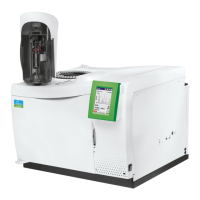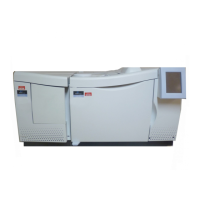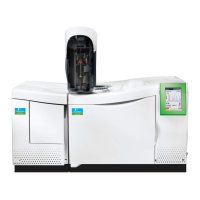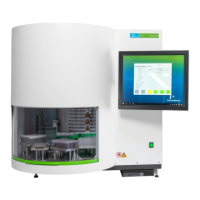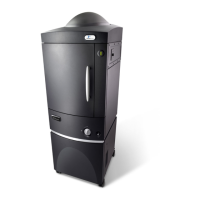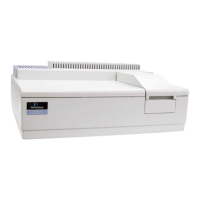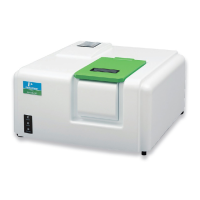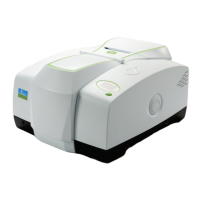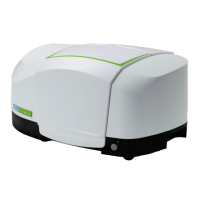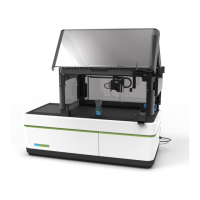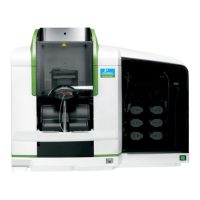Introduction
1-10
Glossary of Chromatographic Terms
*
Adsorption – A process that occurs at the surface of a liquid or solid as a result of
the attractive forces between the adsorbent and the solute. These forces may be
physical or weakly chemical.
Analysis – The complete investigation of a sample by gas chromatographic
separation including identification of the sample components and quantitative
measurements.
Anode – The positively charged electrode in any electrical circuit to which
charged particles and ions are attracted.
Band Broadening – A process that occurs in the GC whereby the peak width for
a component increases the longer the component travels through the column.
Baseline – The detector signal to a recorder or integrator when only the carrier
gas is passing through the detector.
Baseline drift – Any regular change occurring in the baseline signal from the
detector, usually resulting from column temperature and/or gas flow changes.
Blank run – A run without the sample being injected.
Bleed – The evaporation of the stationary phase from a column.
Capillary column (wall coated open tubular column) – A small-internal-diameter
column whose inside wall is coated with a liquid phase.
Carrier gas – The mobile phase of the separation system. An inert gas which
transports the sample from the injector through the column to the detector. This
gas is usually helium, hydrogen, or nitrogen.
Column conditioning – A process for producing a stable column by heating the
column with carrier gas flowing to remove volatile impurities from the stationary
phase.
Detectors – Hardware that responds to sample components producing an
electrical signal that can be measured to quantitate the amount of each
component present.
Flow programming – The stored PPC program is interpreted as real column
mass flow settings or capillary column flow settings from which the inlet
*
Reference: Denney, R.C. A Dictionary of Chromatography.
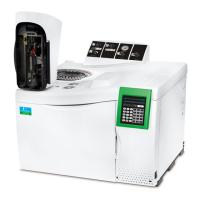
